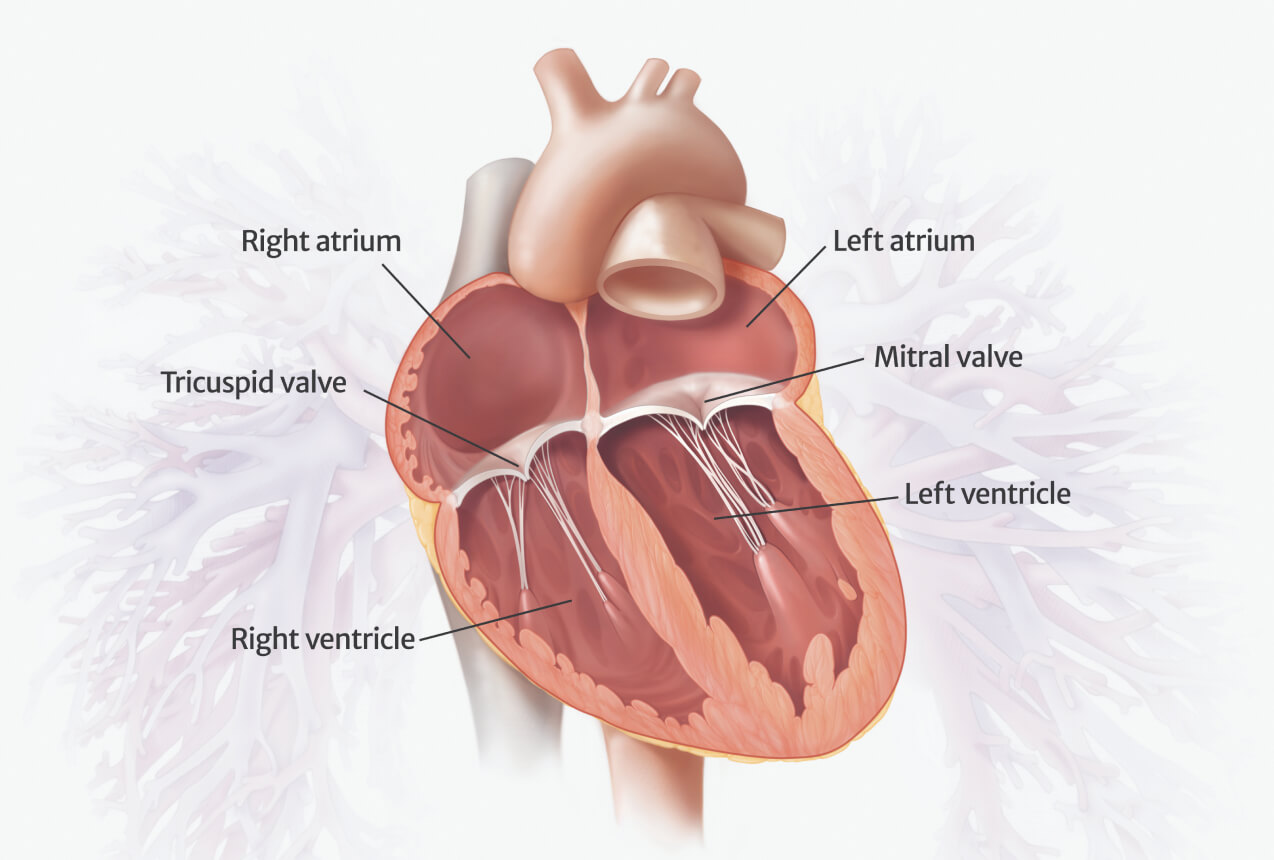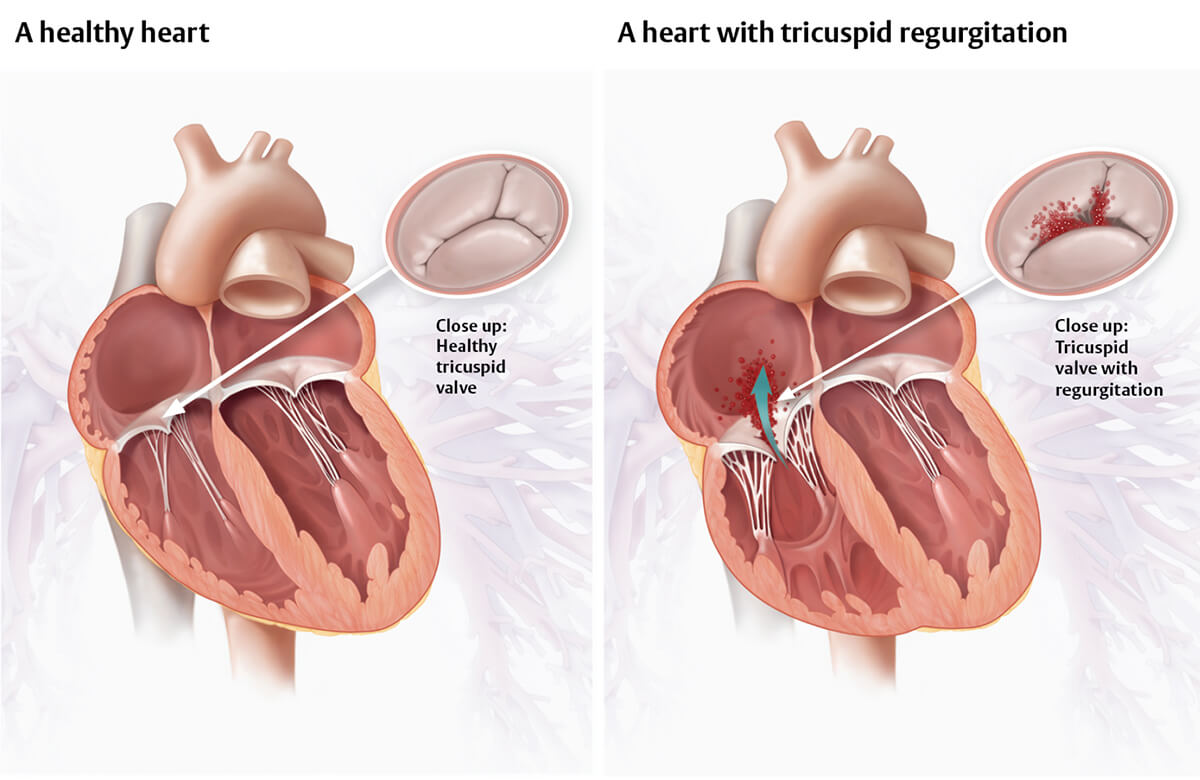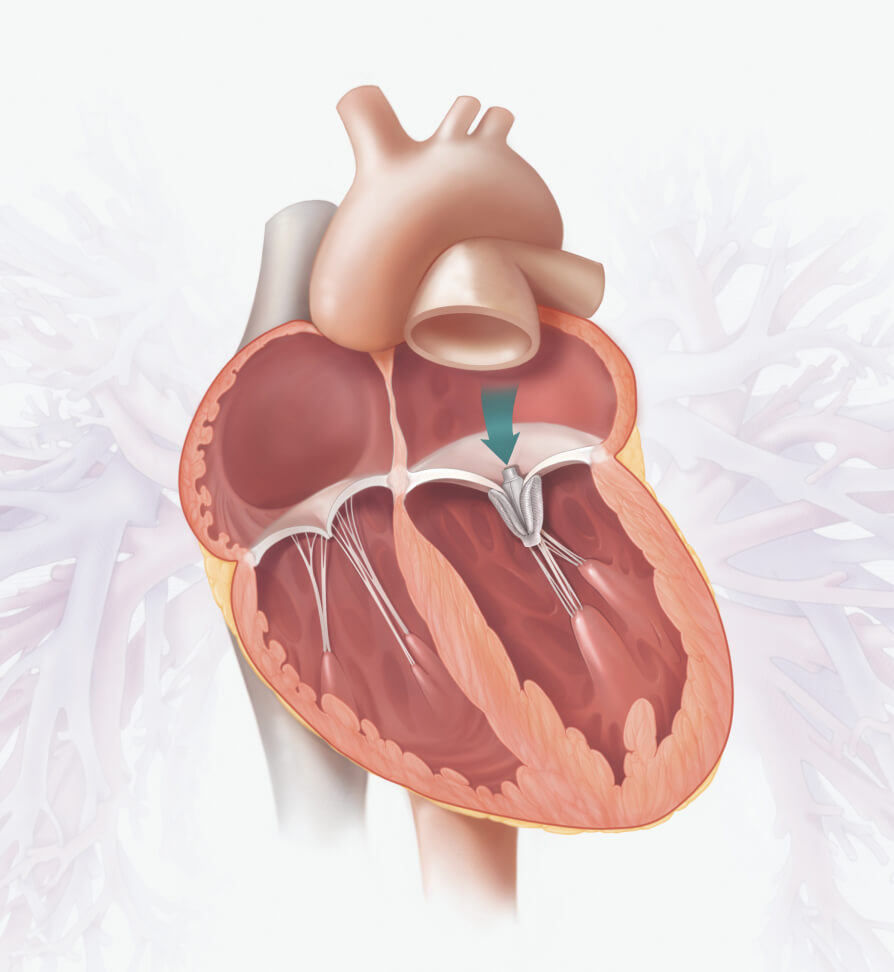
How are mitral and tricuspid regurgitation treated?
Valve repair with the PASCAL Precision system is one treatment option that can help you get back to everyday tasks.
Mitral and tricuspid valve regurgitation are serious heart problems that can affect your quality of life


As your heart pumps blood throughout your body, four valves open and close to help blood flow at the right time and in the correct direction. Blood flows from your body to the right side of your heart – through the top right chamber, tricuspid valve and bottom right chamber.
It passes through the lungs to receive oxygen before passing through the left side of the heart – through the top left chamber, mitral valve and bottom left chamber – and flowing out into the body.1

Mitral regurgitation (MR) is a condition in which the mitral valve doesn’t close properly, causing blood to leak back through the valve.1,2
Because this leak can reduce overall blood flow, the heart must work harder to get enough blood to the rest of the body. Mitral regurgitation can worsen over time, and you may not develop symptoms until the condition is severe.3
With mitral regurgitation, you may notice symptoms that affect your quality of life:

Tricuspid regurgitation (TR) is a condition in which the tricuspid valve doesn’t close properly, causing blood to leak back through the valve.1,4
Because this leak can reduce overall blood flow, the heart must work harder to get enough blood to the rest of the body. Tricuspid regurgitation can worsen over time, and you may not develop symptoms until the condition is severe.4
With tricuspid regurgitation, you may notice symptoms that affect your quality of life:

One treatment option for mitral and tricuspid valve regurgitation is called transcatheter valve repair. Your specialized care team may consider this treatment option if you have severe mitral or tricuspid regurgitation but can’t undergo mitral or tricuspid valve surgery.
Transcatheter mitral valve repair (TMVr) and transcatheter tricuspid valve repair (TTVr) are catheter-based procedures to repair leaking valves.
This option is different from traditional heart surgery, in which the surgeon cuts through the chest wall and then the heart to access the valve. Instead, TMVr and TTVr involve implanting a device through a small cut near your groin using the PASCAL Precision system.

Now I travel all over the country to see my family, and it’s very important to me that I see them, that I be a part of their lives. All of this is possible for me because I feel better.
-Dorothy, PASCAL Precision system patient
For a listing of indications, contraindications, precautions, warnings, and potential adverse events, please refer to the Instructions for Use (consult eifu.edwards.com where applicable).
Edwards, Edwards Lifesciences, the stylized E logo, CLASP, Edwards PASCAL, Edwards PASCAL Precision, PASCAL, and PASCAL Precision are trademarks or service marks of Edwards Lifesciences Corporation. All other trademarks are the property of their respective owners.
© 2023 Edwards Lifesciences Corporation. All rights reserved. PP--EU-5802 v1.0
Edwards Lifesciences • Route de l’Etraz 70, 1260 Nyon, Switzerland • edwards.com